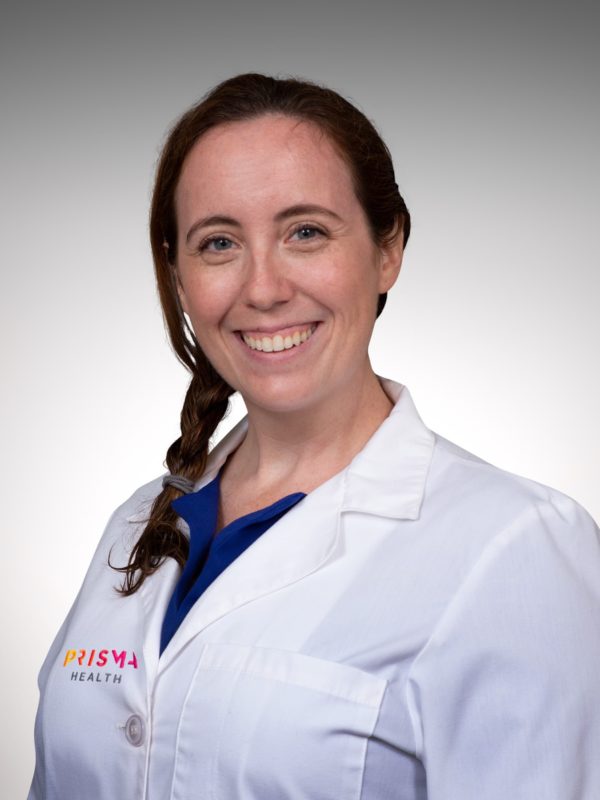Why echo chambers are harmful – and how to get out
Child and adolescent psychiatrist Casey Berson, MD, discusses the psychological effects of echo chambers, ways to identify if you’re in one, and strategies to break free. She explains how social media can often stand in the way of presenting different perspectives and fostering meaningful conversations.
Transcript
Caitlin Whyte (Host): Welcome to Flourish, the podcast by Prisma Health, where we bring you insights on health and healing from trusted experts. I’m your host, Caitlin Whyte. Today, we’re thrilled to have on Dr. Casey Berson, a child and adolescent psychiatrist. We’ll be discussing the impact of echo chambers on our minds and society, and learn how to break free from these bubbles.
Well, to start us off today, doctor, what is the definition of an echo chamber?
Dr. Casey Berson: I love this question. So, I think about an echo and what that sound actually is when you yell out into a cave or an enclosed area, any tunnels that you’re maybe biking through or walking through and you yell out a sound and it comes back to you, right? We got that echo, echo, echo kind of coming back.
Similarly, when I think about an echo chamber in the social media realm, what we’re talking about is you’re looking for information. And then, similar types of information gets pushed toward you back. So, it ends up being kind of everything that you’re seeing is related to the information that you’re searching for.
Host: Now, what is the psychological effect of being in an echo chamber, and is it harmful?
Dr. Casey Berson: That’s such a hard question, because it really depends on the echo chamber that you’re in. When I think about only getting one type of information, that can be really, really harmful if that type of information pertains to, let’s say, depression. And so, I’m constantly getting inundated with things that make me feel a certain way and maybe a way that’s counterintuitive to how I would like to enjoy or like to do things that it’s affecting my emotional wellbeing and state. And maybe I’m starting to see some things that propel or push me to start thinking about ways that I could maybe act on that depression.
So, I think that there’s, certainly, the propensity for harm depending on what you’re actually surrounded by and seeing. And we think about or hear about these words in the social media realm of contagion or Werther effect, specifically suicide contagion, and how we hear or see things and what does that mean to influence our behavior going on.
I certainly think that there’s a way that it could be dangerous, but I think the opposite is also true, right? It’s another way to think about immersion or if you’re getting lots and lots of information only about how to speak Spanish and that’s all that you’re going, or all that you’re seeing, or how to play the guitar or kind of get all this information, it could be helpful.
I think the most important thing is to recognize that you’re in one, that you’re getting only one side of the information, one side of the coin, so to say, and that it aligns with what you’re trying to accomplish.
Host: So, how can you tell if you’re in an echo chamber?
Dr. Casey Berson: This is where it’s important to really take a break and take a step back and look analytically at what information is being suggested for you. So, a lot of times, when I’m in a session or having conversations sometimes with patients, I’ll ask them, I’ll ask them that question specifically. Like, “Give me an example of what kind of videos get recommended to you if they’re using social media.” And really, about paying attention, but consciously taking the step back to look and analyze what you’re actually seeing. And then, taking that further step of saying, “Okay, how do I feel about this? Is it helping me?”
Host: Well, on that note, then, how can you escape an echo chamber?
Dr. Casey Berson: We know that these platforms, they’re designed to engage our in interest, right? The commodity that they’re using and going on is attention. And so, similarly to how we started to get into the echo chamber, which is searching things, a way to get out of it is To intentionally search for the opposite of what we’re looking for or for completely different information than was there to kind of broaden the horizons of what actually gets recommended for you and what you’re seeing.
Host: And what can we do if we suspect a loved one is kind of trapped in one of these echo chambers?
Dr. Casey Berson: So, I think it’s always nice to take a break and make sure we’re connecting with people in a way, not just online, but in other areas and other ways of life. Taking the time to pursue other interests and maybe doing that together. Talking with them and holding the real conversations, sometimes hard conversations, and finding other common grounds in other ways. I think we’re drawn to social media sometimes, or really just communities because we feel a part of something and we want to feel a part of something. We want that connection and to bring close together. And so, it’s finding a variety of ways to do that with different people I think can help sometimes.
Host: Thank you, Dr. Berson, for sharing these valuable insights on the effects and challenges of echo chambers. If you want to delve in further and stay updated with the latest in health and wellbeing, visit prismahealth.org/flourish. Don’t forget to subscribe to Flourish, and join us next time as we continue to explore topics that help you lead a healthier and more informed life. Stay open-minded and keep flourishing.
Read More
Find a doctor
Whether you’re looking for a primary care physician or need to see a specialist, we’re here to help with experienced, compassionate care near you.
Find a Doctor

